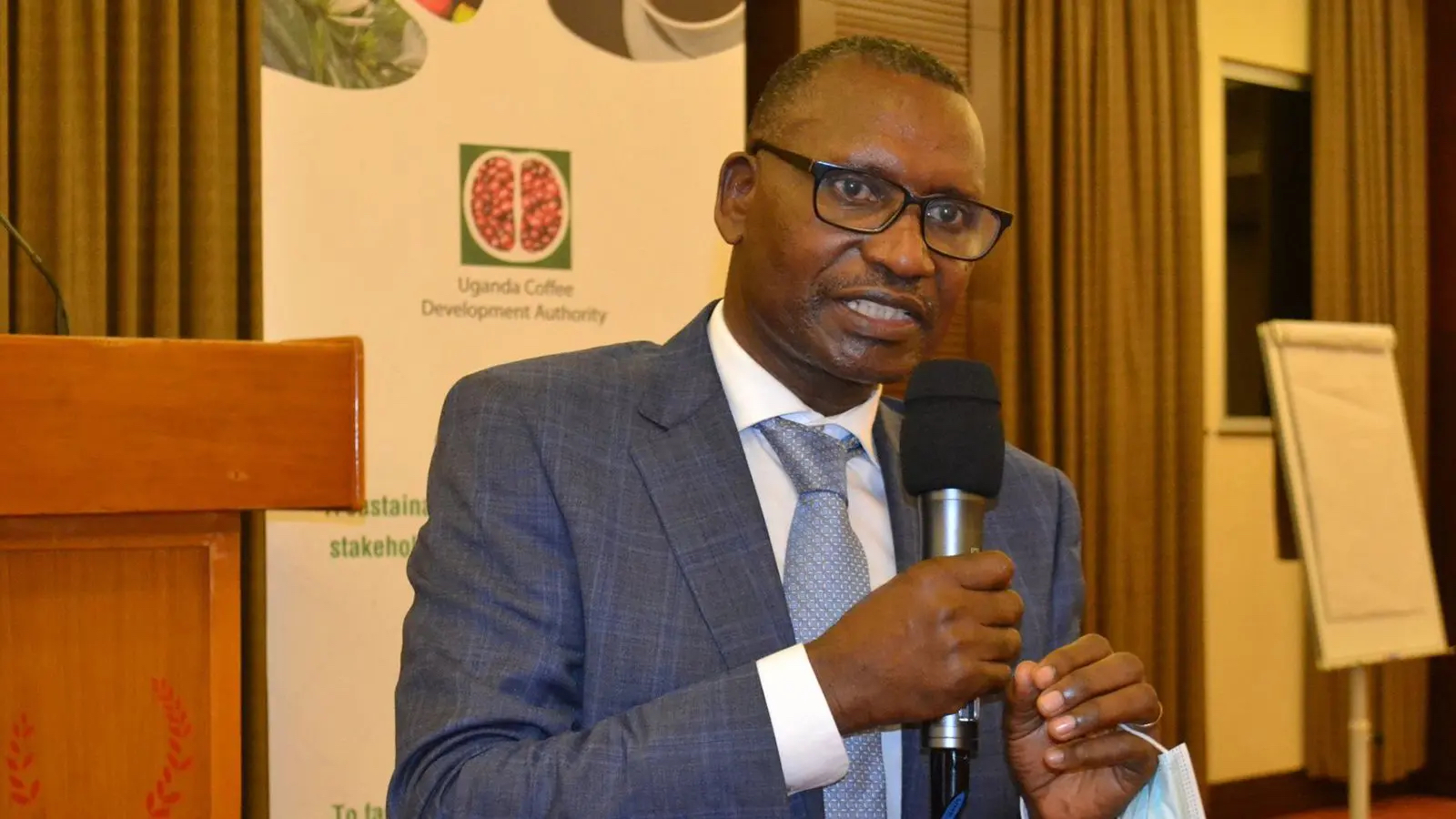
Coffee exports for 12 months (FY2021/22) totaled 6.26 million 60kg bags worth US$ 862.28 million compared to 6.08 million bags worth US$ 559.16 million the previous year (FY 2020/21). This represents an increase of 3% and 54% in both quantity and value respectively.
June coffee exports fell by 14% to 530,365 60-kilo bags of coffee valued at US$ 83.79 million. This comprised 444,197 bags of Robusta valued at US$ 60.98 million and 86,168 bags of Arabica valued at US$ 22.82. This was a decrease of 14% in quantity but an increase of 43% in value compared to the same month last year. The decrease in quantity is attributed to a dry spell that has affected many coffee-
growing regions in the country. As a result, our 6.5m bags target was not met.
I wish to thank the coffee farmers and value chain actors who have remained resilient despite the dry conditions we are experiencing in the country. The dry spell has impacted negatively on the production and productivity of the sector.
The erratic weather patterns call for increased investment in climate change mitigation and adaptation measures. I encourage farmers to practice GAPs, plant shade trees, and mulch coffee gardens to offset the impact of climate change. We are also working closely with the Ministry of Agriculture, Animal Industry, and Fisheries to support farmers to engage in irrigation.
In May 2022, coffee-producing countries in Africa witnessed a historic moment when the Inter-African Coffee Organisation (IACO) members signed the Nairobi Declaration to have coffee anchored as a strategic commodity under the African Union in harmony with AU’s Agenda 2063.
The Nairobi Declaration ushers in a new era with coffee earmarked as a priority commodity for Africa’s economic revolution. The Nairobi Declaration will support coffee-producing countries such as Uganda to address several challenges the sector has grappled with such as market access, technology, value addition, and research.
We are honoured to be the hosts of the second G25 African Coffee Summit which will be held in Kampala in 2023. This is a great opportunity for Uganda to showcase the coffee sub sector successes.
Lastly, UCDA embarked on a fertiliser distribution and coffee rehabilitation programme across the country. I wish to thank the farmers who heeded our call and stumped the old and unproductive coffee trees. Stumping increases the amount of coffee produced by a tree by three times. If farmers run coffee as a business they will certainly enjoy the benefits of increased production and productivity on their farms.